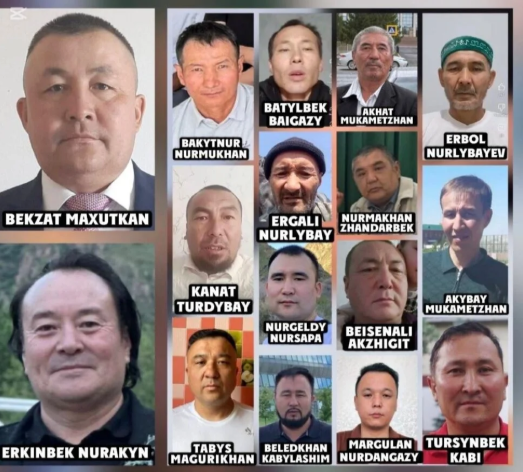Pope Leo XIV, Father Dowling, and China
- info775148
- 12. 5.
- Minut čtení: 4
Like the literary character of a priest-detective from Chicago created by Ralph McInerny, the American Pope may hold a few surprises.
May 12, 2025

When Pope Leo XIV, Robert Francis Prevost, gave his first short speech in Saint Peter’s Square, I was immediately reminded of Father Francis Dowling, the priest from Chicago who solves murders and other mysteries in the novels of the late Catholic philosopher Ralph McInerny. Those who have seen the TV series “Father Dowling Mysteries” may disagree, as the newly elected Pope could hardly be more physically different from the rotund Tom Bosley, the actor who played Father Dowling and is better known for his role as the father of Richie Cunningham in “Happy Days.” However, I corresponded with McInerny and met him. He admitted the TV series was humorous but insisted it had nothing to do with his books.
Based on my first impressions of him (I never met Cardinal Prevost), the first American Pope’s smile, patience, and wisdom are much more reminiscent of the literary description of Father Dowling than Bosley’s antics in the TV series. McInerny’s thirty-two Dowling novels (plus several short stories) have a depth that TV did not capture. They are detective stories, and in each, the Chicago priest identifies the perpetrator of a crime. However, the culprits are of interest to Father Dowling because they are problematic human beings and sinners. Some of them are Catholic priests, and several novels provide an opportunity for McInerny to deal with problems of the Catholic Church. Most criminals, however, are described as people who have lost, or never met, God, and despise Christianity.
McInerny was primarily a philosopher. He told me humorously, but with some sadness, that in his old years, he realized he would be remembered for his detective novels, which he regarded as a divertissement, rather than for his massive philosophical works and the courses he taught at the University of Notre Dame. Perhaps, however, he also taught philosophy through detective novels. They convey his central idea, that without God humans are lost, hope disappears, and even crime is not far away. This is the moral that Father Dowling draws from the crime at the end of each book.
In his first homily, on May 9, Pope Leo said that “today, there are many settings in which the Christian faith is considered absurd, meant for the weak and unintelligent. Settings where other securities are preferred, like technology, money, success, power, or pleasure… A lack of faith is often tragically accompanied by the loss of meaning in life, the neglect of mercy, appalling violations of human dignity, the crisis of the family, and many other wounds afflicting our society.” This corresponds to Father Dowling’s diagnosis of crime and is very much expressed in what readers of McInerny would recognize as the solid Christianity of old priests from Chicago.
We do not know much (yet) about Pope Leo’s opinion on world politics. Liberals rejoiced that he posted remarks critical of the current Trump administration’s immigration policies on social media. Conservatives noted that he voted three times in Republican primaries in Illinois in 2012, 2014, and 2016 (but interestingly not after 2016, an attitude adopted by many old-style Republicans disillusioned with Trump).
This may be described as typical of many American Catholics. It warns against ascribing the Pope to any American political party. It does not help us predict Pope Leo’s positions on Russia, Israel—or China. To the best of my knowledge, there are no significant statements by Cardinal Prevost on international politics. There is, however, a statement by Taiwan’s ambassador to the Holy See, Matthew Lee, who is leaving his position this week. He said he met Cardinal Prevost and concluded that he “understands the difference between democratic Taiwan and communist China.”
Lee’s comments may or may not be important. I have been interviewed on Pope Leo and China by journalists who insist that Pope Francis’s Secretary of State, Cardinal Pietro Parolin, whom many predicted would be elected as Pope, controlled a significant number of votes in the conclave and should have come to some agreement with Cardinal Prevost. Conclaves are secret, and this is just speculation. It will not be confirmed when Leo reappoints Cardinal Parolin as Secretary of State. Most Popes reappoint the closest co-workers of their predecessors, at least for a transitional period.

A key question that has never been satisfactorily answered is whether Cardinal Parolin was the “architect” of the problematic Vatican-China deal of 2018, as we have read in so many media (with some arguing this counted against him in the conclave). This version may well be true. For Vatican insiders, however, this is not obvious. There is an alternative narrative depicting Cardinal Parolin as “accepting” rather than “promoting” an idea and a strategy originating with the Community of Saint Egidio, a lay Catholic movement influential on the Argentine Pope and well-known for its political activism and pro-Chinese leanings. Once Pope Francis had accepted the idea, Cardinal Parolin, a professional diplomat and a loyal executor of the Pontiff’s orders, gave the project a diplomatic shape and concluded the final negotiation with the Chinese. In this version, however, he is depicted as less enthusiastic about the agreement than many believe. And indeed, he has trained eyes to see the problems with its application, beyond the naïve optimism of many.
Time will tell whether Cardinal Parolin’s Chinese policy will change once he no longer reports to Pope Francis but to Pope Leo. It may also be a grave mistake to assume that Leo has no position on China and other international issues, and his entourage will dictate his attitude. Pope Leo cannot be an expert on everything. But, just like Father Dowling, his meekness may be somewhat deceptive.
Source: bitterwinter.org










Komentáře